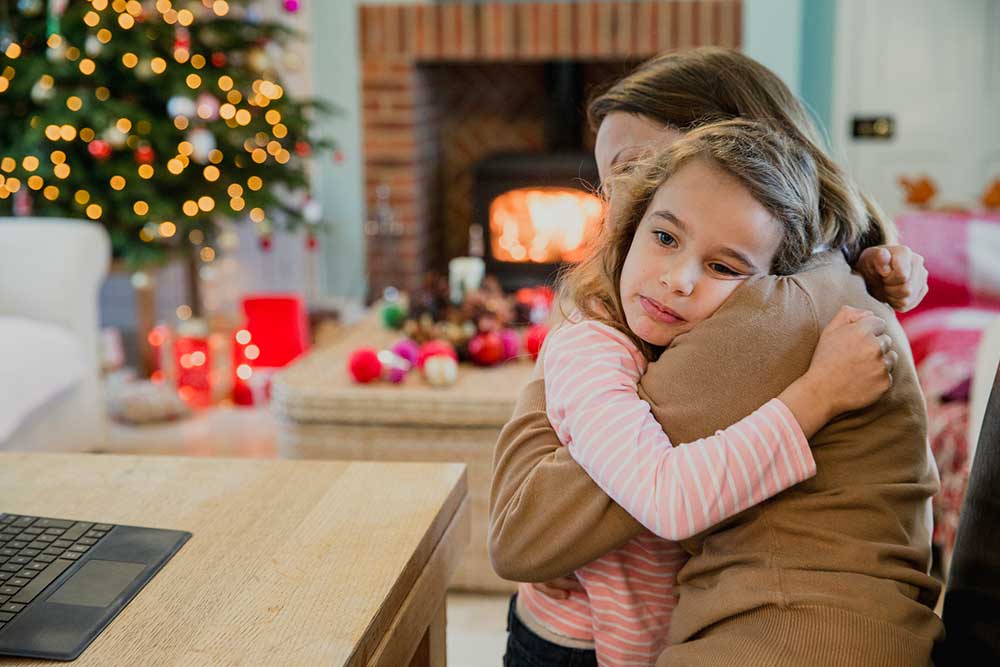The “Holiday Blues:” 10 signs, 6 ways to help if your child is experiencing them
The holiday season is a joyful time of the year, full of hope and wonder. However, it can also come with many stressors: travel, holiday rituals, events, family get-togethers, financial strain, pressure to make the season special, entertaining others and the absence of loved ones.
These stressors can impact children as much as their caregivers, resulting in temporary yet difficult emotions like depression, anxiety, loneliness, disappointment, grief and anger. This experience is sometimes referred to as the “holiday blues.” Unfortunately, these “blues” often overlap with an individual’s more persistent emotional or behavioral health needs, creating additional obstacles for them and their family.
Here are 10 signs that your child may be feeling the “holiday blues”:
- Sadness and tearfulness
- Withdrawal or disengagement from others (e.g., increased social media, TV or video game intake)
- Unexplained stomach, body or head aches
- Sudden changes in sleep
- Fatigue or sluggishness
- Notable changes in appetite or weight
- Trouble concentrating or paying attention
- Irritability, emotional outbursts and defiance
- Feeling overwhelmed, nervous and stressed
- Not experiencing happiness during normally pleasurable activities
If your child/youth is having mental health challenges because of the holidays, here are some steps to help:
- Talk to your child about the holidays, including potential stressors. Listen and convey empathy and validation for what they are feeling. Express your desire to provide them with extra love, compassion and support during this hectic season.
- Clarify expectations for what your child can expect, including holiday events/activities on the calendar, gifts, travel, etc.
- Maintain as much of the family routine as possible (e.g., daily schedule, sleep, healthy eating habits, time with peers), which may involve setting boundaries with others.
- Do things as a family, such as going outside and getting sufficient physical activity, attending free or low-cost holiday community celebrations and enacting family game time.
- Create holiday rituals and traditions as a family (e.g., cookie decorating, making homemade cards or gifts).
- Manage caregiver stress by accepting help, setting realistic expectations for yourself and the season, avoiding taking on too much, taking slow, deep breaths and practicing self-care, such as setting aside time for yourself, getting enough sleep and eating well.
If your child’s “holiday blues” last longer than a couple weeks and/or include self-injurious, suicidal or physically aggressive behavior, contact their primary care physician to discuss mental health counseling and/or medication options. In Tennessee, you can call the Youth Villages Specialized Crisis Services at 1-855-CRISIS-1 (1-855-274-7471) or text TN to 741741. You can also reach out via the National Suicide Prevention Hotline by dialing 988.
By Megan Facer
Clinical Services/Assistant Director of Intensive In-Home Services
Youth Villages

